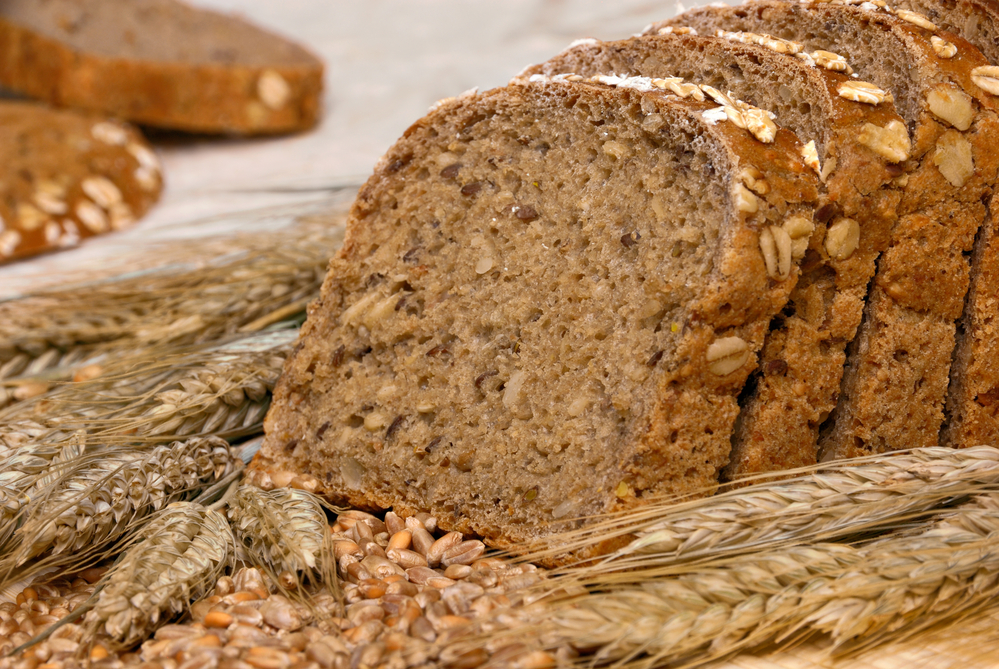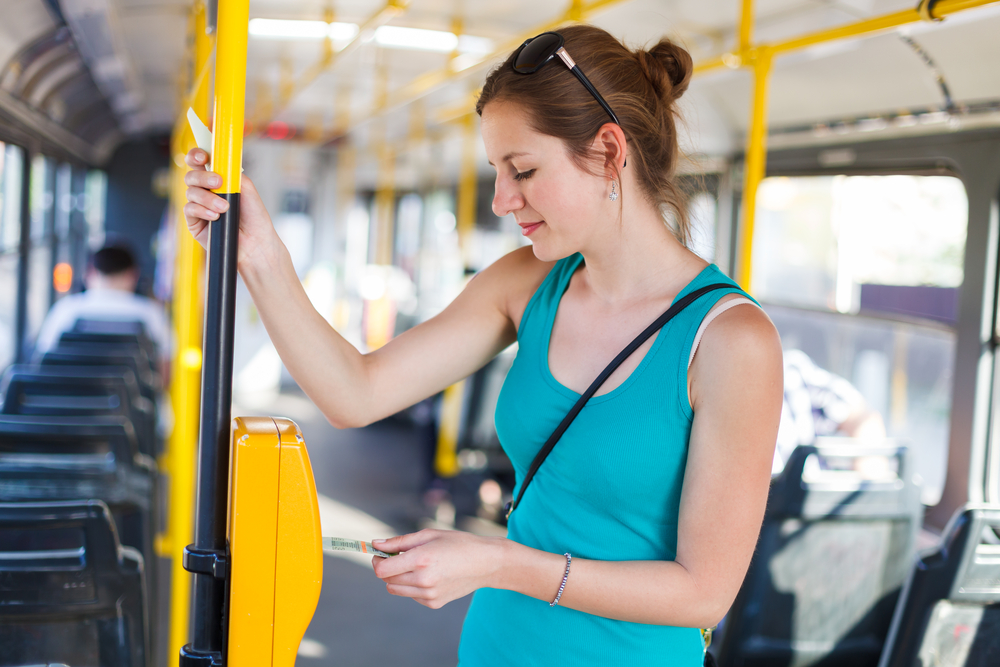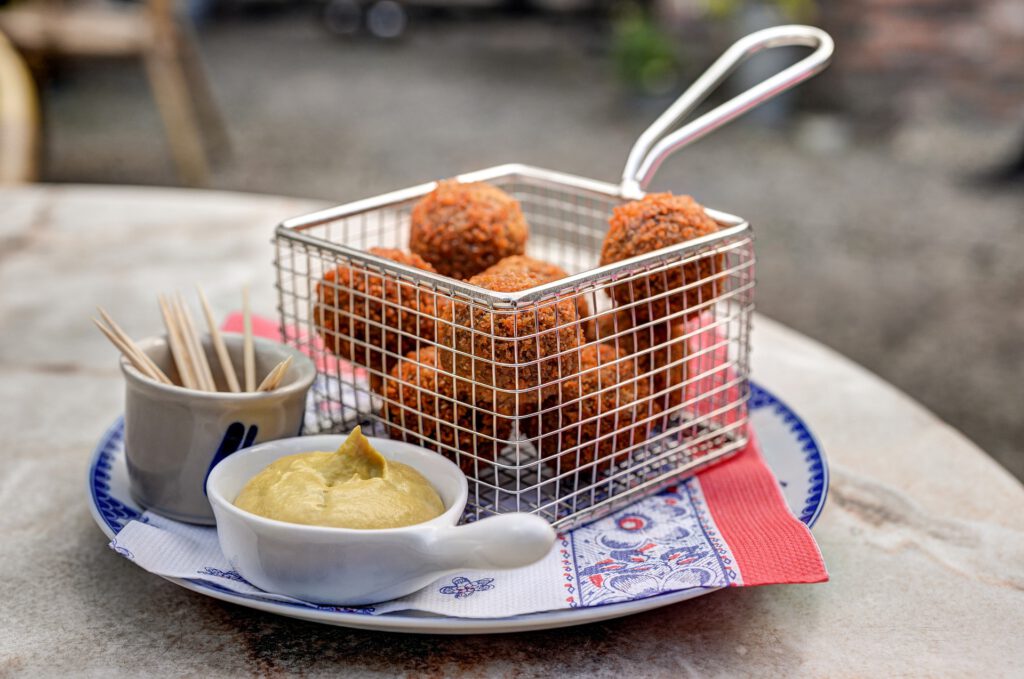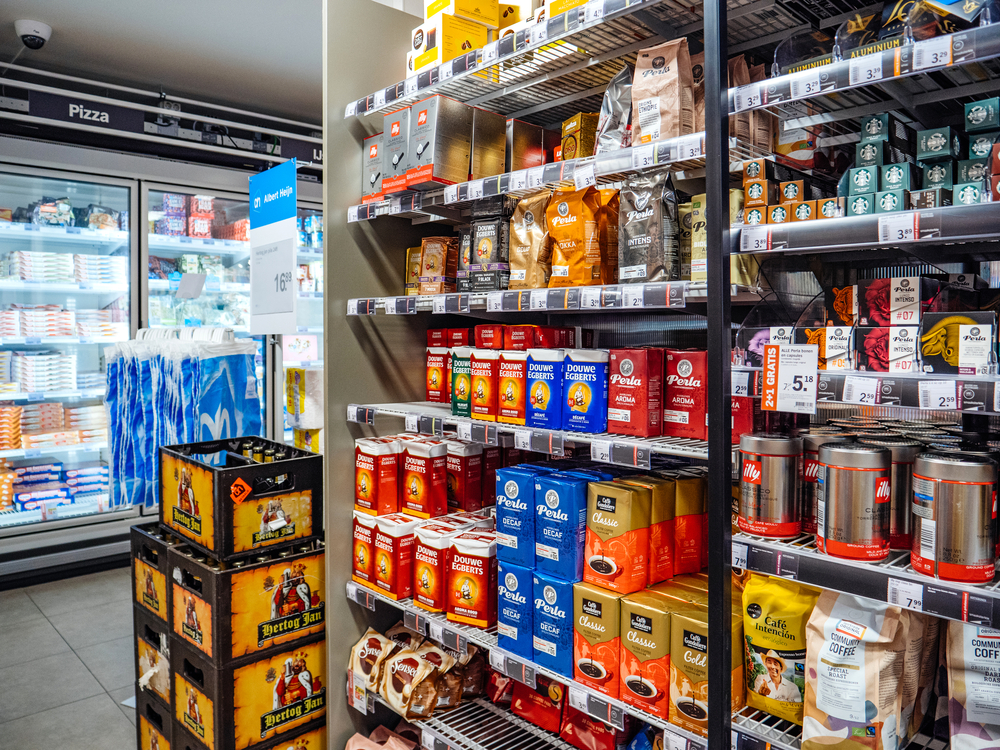Germany and the Netherlands are (really) old neighbours.
They share historical ties, a love for beer, loads of blond hair between their inhabitants, and both use the word überhaupt (anyhow/anyway).
But apart from that, these two countries are distant relatives at most. Unique in their cultural quirks, there are likely way more differences between them than you might initially think.
Benieuwd 🇳🇱? Or rather, neugierig🇩🇪?
Whether you’re German or an entirely different nationality, there’s one thing that’s always true: Undutchables is the go-to recruitment agency for finding jobs in the Netherlands. They’ve got heaps of jobs for German speakers too!
1. Germans love cash
Despite the commonly-held assumption that Germany is a forward-thinking and progressive country, Germans do struggle quite a bit with digitisation.
While Dutchies whip out their phone at the cash register or simply pay by card, Germans insist on fiddling around with one and two-cent pieces to settle their bills.
That’s because, until quite recently, many German stores did not have credit or debit card terminals. In the Netherlands, it’s the opposite, and you’ll occasionally have trouble paying by cash.
One thing is for certain, you don’t want to endure the death stare of an Albert Heijn cashier when trying to pay an €18 grocery shop with a €100 bill. Trust me.
2. Dutchies work shorter hours
Here’s a stereotype that rings true — Germans are hardworking folk. Or do Dutchies simply work less?
Whatever the case, according to the OECD Better Life Index, which compares the work-life balance of different countries, the Netherlands definitely comes out on top!

Only 0.3% of Dutchies work ‘very long hours in paid work’, the third-lowest amount in the entire ranking. In contrast, 3.9% of Germans do the same — youch!
Well, if that isn’t a good argument to leave the mountains behind and move to the lowlands I don’t know what is.
3. German bread is just better
This is the ultimate truth: Dutch bread sucks — at least compared to German loaves. What is known as brood here barely passes as toast back in Duitsland.

Where German bread is dense, nourishing, and available in hundreds of variations, the Dutch are happy with a slice of untoasted, gooey, and tasteless brood. Igitt Igitt (Yuck), as we say in Germany.
But who cares as long as there’s a slice of cheese on it, right? 🥲
4. Dutchies speak better English than Germans
Here’s another thing that just doesn’t quite live up to the idea that Germans are modern and progressive: many of us don’t speak English very well. Even the young ones.
That’s because, for one, you don’t have to speak English if you live and work in Germany. All media, including movies, newspapers and series, are translated into German.
On top of that, English classes in German schools tend not to be very good, so adults have trouble picking up the language later on.
Dutchies, however, are repeatedly ranked as the best non-native English speakers in the world.
In fact, one of the reasons it’s so hard to learn Dutch as an international living in the Netherlands is because English is spoken everywhere. That’s good and bad, I guess!
5. German public transport tickets are super old-fashioned
What can I say, Germans just love to produce unnecessary paper wherever they can. While the Dutch have their OV card, Germans buy weird paper slips from the bus drivers.

Even in big cities, including Berlin, you’ll see Germans impractically try to push a tiny paper ticket into a slot at the electronic gates. What a hassle.
In the meantime, five Dutchies in Amsterdam have already passed through their metro gates with a smooth touch of their OV.
6. Dutchies aren’t afraid to speak informally
Unlike in English, both the German and the Dutch languages distinguish between addressing a friend and addressing someone in a position of power. The Dutch say ‘u’, and the Germans say ‘Sie’.
The distinction between the informal ‘Du’ and the formal ‘Sie’ is still very important in Germany. You don’t address an unknown person — be it the older lady on the bus, the 25-year-old waiter, or your boss — as ‘Du.’
In the Netherlands, on the other hand, it’s not that big of a deal. Dutchies are egalitarian, after all, so the informal ‘je’ will suffice. Fine, we’ll ‘u’ Queen Maxima if we have to, but your boss or the random person you’re trying to get directions from? No way.
7. Germans know to shut up on public transport
I find it eerie to step onto a German bus or train these days. Why? Because it’s so quiet. 👀
Unless you’ve chosen the one unfortunate day where there are a bunch of rowdy, drunk football fans trying to get from one German city to the other, it’s perceived polite in Germany to mind your own business on public transport. Quietly.
In Dutch trains, you’ll have people talking shamelessly on their phones, watching videos with the sound on loud, laughing loudly with each other, or starting a convo with their newly-found seatmate.
Top tip for all my Germans out there: most Dutch trains have special stilte-wagons (silent-wagons) if you’re looking for some peace and quiet (although they don’t always work).
8. Dutchies borrel, but Germans have their Feierabendbier
Here’s a similarity: beer. This golden, alcoholic beverage is the cornerstone of the drinking culture in both countries. The two neighbours differ only in the way of consumption.
There’s a term in German, the Feierabendbier, which roughly translates to after-work-beer. It’s okay to start drinking sometime after 5 PM, especially after work on a weekday when you’ve really earned it.

Dutchies, on the other hand, are much more liberal with the where’s and when’s of their beer consumption. Sure, it’s not super good for you to start nipping on an ice-cold Heineken at 3 PM on a Wednesday. But who cares, really?
Most popularly, of course, the Dutch like to drink their biertjes during a borrel. Borrel culture is huge here in the lowlands and is an explicit social gathering. The Feierabendbier can be enjoyed in solitude. But a borrel-beer? No way!
9. Germans are still all about WWII
Being confronted with the shameful history of my home country upon revealing my nationality to a Dutch person happens more than you would think.
Usually, it happens in the form of a joke or a rash question regarding the involvement of my grandparents in the Hitler regime.
Hard feelings are rarely involved (though it happens!), but it shows a laxer approach towards WWII commemoration in the Netherlands than in Germany.
Germans are acutely aware of how they’ve stood on the wrong side of history, and we don’t make any jokes about it!
10. Dutchies won’t be caught dead in bike helmets
Helmet, who? Safety, what? This is the basic tenor when cycling in the Netherlands. Maybe it’s because bikes rule the streets anyway, but bike helmets rarely make their way onto the heads of the Dutch.
In Germany, on the other hand, you can see bike helmets everywhere. Especially younger kids and children are forced by their parents to put them on (and usually take them off secretly as soon as they’re out of sight.)
Why? The next point might give you some answers.
11. Dutchies love to break the rules; Germans are followers
Germans love rules. They love to follow rules. And they love to talk and think badly about people who don’t follow rules.
And the Dutch? They see rules, ignore them, and sometimes protest against them.
For example, at the start of the coronavirus pandemic, this particular difference between the two countries was painfully obvious. In Germany, citizens more or less dutifully followed one lockdown rule after the other.
In the Netherlands, frequent (and illegal) protests occurred, and shops, museums and nightclubs opened despite regulations to stay shut. Even the Dutch police refused to do anything about it because they were overworked and didn’t see the point.
Doe normaal, right Dutchies?
12. Germans can (legally) drink at a younger age
Ha! At least one thing we’re more liberal on than the Dutch: teenagers drinking alcohol.
Wait. Okay. Maybe I’m more excited about this than I should be, but in Germany, you’re legally allowed to buy and drink low-percentage alcohol like beer and wine at 16. The legal drinking age (as of 2014) in the Netherlands is 18.

Of course, many young Germans and Dutchies start drinking much earlier than that. But it’s the thought that counts. I guess.
13. German workplaces are more hierarchical
Remember how, in Germany, you would never address your boss with the informal ‘Du’, but in the Netherlands, it’s not all that uncommon?
That’s also because of the conservatism in the German workplace. If you arrive in a Dutch office, even one on the corporate end, with ripped jeans, sneakers and a blue streak in your hair — there’s a good chance that no one will care.
But in Germany? No way! There must be order, structure, and (most importantly), you must honour the workplace hierarchy!
For one, you need to look like you’re at the office. And secondly, you have to know your place. Only the polite ‘Sie’ for your boss, please.
Ready to join in on those casual Dutch workplace vibes (and take advantage of that snazzy work-life balance)? Undutchables have stacks of jobs for German speakers (that’s right, you’re in high demand!).
14. Dutch meetings are a lot more casual
Because of the non-hierarchical work structure in the Netherlands, meetings are often more like social outings than serious and professional appointments.
A Dutch meeting can happen during a walk, over some borrel snacks, or even in the queue to the coffee machine. In contrast, 99% of the time, German meetings will occur around a large, oval table. There might be some bottled water if you’re lucky.

Germans simply like to get things done. Dutchies do, too, but they also want to know about their colleagues’ new paint job. Oh, and how are the kids doing?
15. German stores are closed on Sundays — except for bakeries
One of my favourite things about the Netherlands is that I don’t have to think about when to do my groceries. Stores are open seven days a week, usually until late evening.
But if I’m in Germany and want to do my weekly grocery shopping on Sunday — not a chance. Our Lutheran legacy forbids any store to open its doors on the holiest of days. But I’m an atheist, I swear!
Except, wait a minute, isn’t that a bakery selling bread rolls at 7:00 in the morning? Yup, the only stores commonly exempted from this strange, outdated rule are the Bäckereien.
This can only mean two things. For one, the German love for bread has outgrown the love for Christianity. Or, secondly, heathens! Heathens in the bakery!
16. Dutchies often speak German, but Germans don’t speak Dutch
As soon as a Dutch someone gets the gist of my nationality, I’ll hear something like: “Oh, ich sprech’ auch ein bis-schen Deutsch.” Meaning that they speak a bit of German.
The opposite is something a Dutchie in Germany is very unlikely to encounter. Even though both languages are more or less similar, the Dutch are far more likely to understand the Germans than the other way around.
Why? Many Dutch people have the option to learn German in school! In German schools, on the other hand, it’s more common to learn Latin languages such as Spanish, French, or Latin.
Wat jammer! (How sad!) 🇳🇱
17. Germans pride themselves on punctuality
One stereotype that rings truer than others: Germans are (over)punctual. Showing up to an appointment 10 to 15 minutes early is being on time.
I have resolved to emulate the German punctuality.
— Saddick Adams (@SaddickAdams) February 25, 2020
“Early is on time. On time is late. Lateness is unacceptable”
Being five minutes late will have the waiting German tap his foot impatiently. The seven-minute mark means you’re being impolite. And everything over 10 minutes is late.
In the Netherlands, people are more flexible. While they are among the more punctual cultures, it’s not a big deal to be five or even 10 minutes late, as long as you let them know. In Germany, it certainly is.
18. The Netherlands is more expensive than Germany
One downside to living in the Netherlands is the living costs. It’s expensive. Or, at least, more expensive than in Germany.
A global comparison of the cost of living per country ranks the Netherlands at #24. However, Germany is not too far behind and ranks at #31.

People living on the Dutch side of the Dutch-German border know this all too well, so weekend grocery shops across the border to a German Aldi are not uncommon.
19. Germans dub, Dutchies sub
Remember the point about Dutchies’ excellent English skills? It’s got a lot to do with the fact that the Dutch generally don’t dub movies! They only have subtitles, which exposes them to heaps of English. Children’s cartoons are the only exception.
In Germany, the dubbing of foreign films is an entire industry. We grew up with specific German voices for legendary actors like Leonardo DiCaprio, Sylvester Stallone, and Meryl Streep, which haven’t changed in decades.
Sure, that’s pretty impressive. However, it also means that Germans can’t learn English through Bruce Willis’ performance in Die Hard — “Yippee-ki-yay, motherf***er” turns into “Yippie-ya-yei, Schweinebacke” (Yippee-ki-yay, pig’s cheek). 🤢
Did we forget a crucial difference between the Dutch and the Germans? Tell us in the comments below!

Seems legit. Only thing is that Dutch bread is waaaaaaaaayyy better tgen Geman bread.
Agree with you Mark. Cara needs to go to the USA to taste bread….she will never complain about the choice in the Netherlands .
EXACTLY what I was going to say. My 0.99 cent brood van Albert hijn is 1000x better than a 5 dollar loaf at any supermarket in the US.
I agree with you.
Me too on Dutch bread. I recall a very good “volkoren” I got at Hema. As good as the best store boughtbread I’ve had anywhere. Bad bread is an American thing. Good whole wheat/multigrain bread in the USA is actually hard to find and expensive when you find it. I found the quality of Dutch groceries to be superior to what is on offer in the USA. I found that merchandise in thr Netherlands is genreally of higher qualty than in the USA. I believe Dutch people find such things as cheap plastic shoes and cheap throw away mechandise to be unacceptable. Americans are more accepting of low quality. A walk thru a big box American Walmart will prove it.
“Dutchies love to break the rules”. No unfortunately not. Many Dutch people are like lemmings, following their kring of people without a second thought in their minds. Too many Dutch people always follow some kind of group or authority, whether it’s the government, their old white male boss, their kring or a bully of a woman talking the most and loudest and her group. You might not see that many Dutch people are actually quite the opposute of rule breakers, because it’s unclear to you who they follow. But the Dutch mob mentality / hivemind is one of the strongest in the world. Too many follow their leaders blindly instead of using their brains.
„Nötigen“.
You are the guest of honour: therefore you will be asked first if you would like a drink. You are polite and answer” no, I’m fine”. In Holland you may end up the only one being without a drink! In Germany you will be asked until you accept a drink!
“Dutch bread sucks” WHAT 😂 absolutely insane statement
Dutch are all about money. Superficial and shallow people. Can never give anything including love to anyone. Very selfish people. Function on a very superficial level. Very fake also and like to advertise they are direct which is BS. Very nice people if you dont know them, Once. you know them properly they are crap. Parents sending tikkie to their children for food. Friends asking for money because you shower at their place and overall basic with crap music. No intensity.
I think that is total nonsense !! I love Holland and the Dutch. They are friendly and informal and definitely NOT mean !! Maybe you are too negative to live there ?
German love to be on time indeed. But not their trains 😂
This was simply one if not the Best Written Article i have ever Read,Simply Beautiful,Well done!!
Half Dutch half German here. I agree with most points, except for two. First and foremost Dutch bread is way better than German! And second in the Netherlands it is also rude to be late. Especially on business, but also at school, doctor, lunch meetings. Also I would like to mention that the culture of directness and getting things done is shared and not found elsewhere in the world except Scandinavia.
I’m trying to relocate to either Netherland or Germany and to get a well paid job…can anyone help me with which one should I choose between Netherland or Germany
In relation to number 12, can u please not talk fucking bullshits and not spread fake news. I was in the NL during the pandemic people were scared as fucking rabbits. The protest were actually in Germany. I was in Den Haag during tbe whole Covid shit and people were afraid even to approach each other.
THE most typically German thing (and there are less of them than you think) is moaning about bread in other countries.
On the whole, the Dutch are more open to new things, more willing to try things out. The Germans want everything to be Tüv approved and according to DIN and generally think they’re the only ones that do things right.
19) The Dutch didn’t start two world wars.